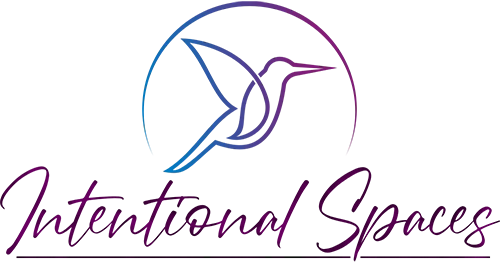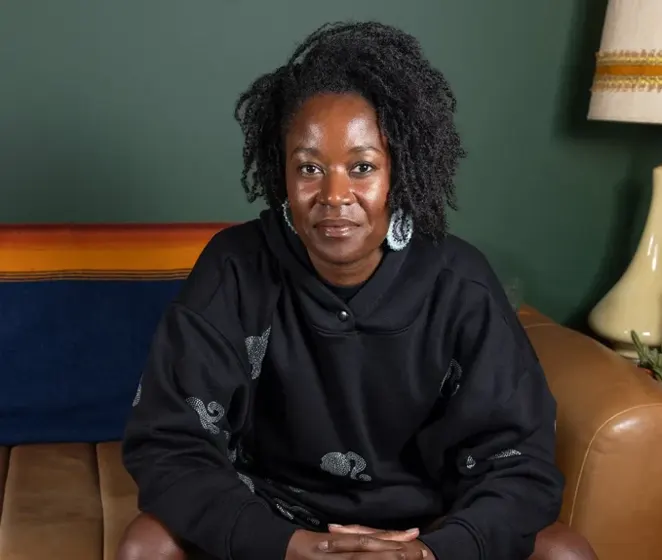by Intentional Spaces Psychotherapy
Anger isn’t inherently “bad.” It’s an emotion wired into us for survival, one that signals when something feels unjust, unsafe, or overwhelming. In its healthiest form, anger can be a guide, drawing our attention to boundaries that have been crossed or situations that require change. In many ways, anger is a form of communication; it lets us know that something deeply matters and demands our awareness.
Yet, while anger has a rightful place, it can also become all-consuming when it’s the only language our nervous system speaks. Instead of being one voice among many emotions, it begins to dominate, leaving little room for calm, curiosity, or connection. When this happens, anger may no longer feel like a tool but like a storm, sweeping through your health, your relationships, and your inner peace.
If anger feels like the default lens through which you experience daily life, shaping how you interpret the world, how you respond to stress, and how you connect with others, it may be time to pause. This isn’t about blaming yourself or labeling anger as “wrong.” It’s about noticing when it’s taking more than it gives. For many, that’s the moment to gently consider whether anger management therapy might provide not only a way forward, but a way back to balance, clarity, and compassion.
What If Anger Isn’t About “Anger”?
What we call anger is often not just anger; it’s a mask for something more vulnerable hidden beneath the surface. Many people who identify themselves as “angry” are, in truth, protecting parts of themselves that feel tender, rejected, or unseen. Anger can serve as a kind of armor, thick enough to keep others from getting too close, but also heavy enough to weigh us down when we carry it for too long.
For some, anger arrives when sadness feels too raw or when fear feels too exposing. It can feel easier to raise your voice than to say “I’m scared” or “I feel alone.” It may feel safer to harden, to push people away, than to risk the grief of being hurt again. And yet, while anger may protect us in the moment, over time it can also build walls, walls that separate us not only from others but from our own inner truth.
If you’ve ever noticed that your anger shows up when you feel disrespected, misunderstood, or abandoned, it’s worth pausing to consider what’s really happening underneath. Is the anger pointing to a deeper need for love, belonging, or safety? Is it standing in for words that feel too risky to say out loud? Often, the emotion isn’t truly about the situation in front of us; it’s about the deeper fear of what it means to let yourself be seen fully.
Therapy creates a safe and steady container to begin exploring these hidden layers without judgment. It offers the chance to take off the armor, piece by piece, and discover that what lives beneath your anger isn’t something to fear; it’s something to be met with compassion, care, and the possibility of healing.
Quiet Clues That You May Benefit from Support
Anger doesn’t always look like shouting, raised voices, or slamming doors. Sometimes it slips in quietly, weaving its way into your daily rhythms in ways you might not immediately recognize. These subtle patterns can be just as telling as obvious outbursts, and often, they’re the body and mind’s way of signaling that something deeper needs care.
Here are some quiet signs that anger may be asking for your attention:
- Tension in the body — Perhaps your shoulders sit higher than you realize, your jaw stays clenched, or your breath feels shallow during even simple conversations. These physical cues often arrive before words do, showing how much your body is holding beneath the surface.
- Choosing silence over expression — Instead of speaking up, you retreat inward. Not because you don’t have thoughts or feelings, but because sharing them feels unsafe, overwhelming, or likely to be dismissed. In the moment, silence may feel protective, but over time it can become deeply isolating.
- Lingering regret after conflict — You replay the scene in your mind long after it’s over: the sharp word, the slammed door, or even the look on someone else’s face. While the moment passes, the regret lingers, leaving you feeling unsettled and disconnected from yourself.
- Using distraction as coping — Scrolling endlessly, staying overly busy, or reaching for food or alcohol when uncomfortable emotions surface. These strategies often help us avoid what feels too big to face, but they can also prevent us from listening to what our anger is really trying to say.
Sometimes, these patterns unfold so gradually that you barely notice them at first. But left unacknowledged, they can quietly create distance between you and the people you care about, and even between you and yourself. Recognizing these signs isn’t about judgment; it’s about realizing your mind and body are calling for a gentler, more supportive way forward.
The Cost of Carrying Anger Alone
When anger doesn’t have an outlet, it doesn’t simply disappear; it often settles into the body, the mind, and the rhythms of daily life. Left unexpressed or unprocessed, it begins to shape the way you feel, how you relate to others, and even how your body functions. What may start as a moment of frustration can grow into a constant undercurrent, quietly draining your energy and resilience.
You may notice:
- Physical symptoms that don’t go away — Tension in your shoulders, headaches, high blood pressure, or constant fatigue. These aren’t just random aches and pains; they’re often the body’s way of carrying what hasn’t been expressed emotionally.
- Emotional exhaustion from being “on guard” — The effort it takes to hold everything inside can leave you drained, irritable, or easily overwhelmed. Instead of feeling present in your life, you may feel like you’re just managing wave after wave of internal pressure.
- Sleep difficulties that leave you depleted — Nights spent tossing, turning, or replaying conflicts mean that mornings begin with exhaustion instead of renewal. Without rest, it becomes harder to regulate emotions, making anger feel even harder to manage.
- A growing sense of isolation — You might feel misunderstood by others, or even cut off from your own needs and feelings. Anger, when unshared, can build walls that keep support and connection out.
- Difficulty experiencing joy or peace — When anger takes up most of the emotional space, it can be hard to access lighter feelings like contentment, gratitude, or playfulness. Over time, life may begin to feel heavier, less colorful, and harder to enjoy.
Carrying anger alone can feel like holding your breath for far too long. Eventually, the weight of it begins to touch every corner of your life. Therapy offers a place to exhale, to release what’s been stored, to feel seen without judgment, and to learn healthier, more compassionate ways of moving through the world.
Exhale, to release what’s been stored, and to learn healthier ways of navigating the world.
How Anger Shapes Our Relationships
Anger doesn’t only live inside of us; it moves outward, shaping the way we connect and relate to others. Sometimes this is visible: raised voices, heated arguments, or slammed doors. But just as often, anger makes its presence known in more subtle ways, weaving itself into conversations, silences, and even the energy between people.
You may find yourself becoming less trusting, less open, or less willing to be vulnerable with the people you care about most. What could have been small misunderstandings may grow into larger conflicts, creating distance where you long for closeness. Over time, the very people who feel safest may begin to feel out of reach, leaving you unsure of how to bridge the gap.
Even in moments of calm, anger can leave behind a residue, an unspoken tension that hovers in the room. This invisible barrier can make it feel complicated, or even unsafe, to let others in. You might catch yourself withdrawing, shutting down, or holding back your true thoughts and emotions. While these strategies may protect you from immediate hurt, they often come at the cost of connection.
What makes this particularly painful is the paradox it creates: anger can leave you feeling both guarded and protective of yourself, yet at the same time deeply lonely and unseen. That loneliness can be difficult to name, especially when it’s wrapped in the armor of anger.
Therapy offers a compassionate space to untangle how anger operates within your relationships. With gentle practice, it becomes possible to recognize the patterns that create distance and slowly replace them with a felt sense of safety, closeness, and understanding. Over time, healing these patterns allows you to experience relationships not as battlegrounds, but as places of genuine connection, support, and trust.
How Anger Management Therapy Softens the Edges
Contrary to popular belief, therapy isn’t about getting rid of anger altogether. Anger is a natural and necessary emotion; it deserves a place in your life, but not the driver’s seat. Anger management therapy helps you build a healthier relationship with anger, learning to listen to what it’s telling you without letting it take control.
With the support of a therapist, you begin to recognize your triggers and notice the moments when intensity starts to rise. Instead of reacting automatically, you practice pausing, grounding yourself, and choosing a response that reflects your values rather than your impulses. Over time, these skills create more space and freedom in the way you move through conflict.
This process often uncovers the layers beneath the anger, emotions like fear, grief, or sadness that may have gone unspoken for years. Therapy offers a safe, nonjudgmental environment where sharing these feelings isn’t a weakness but a step toward wholeness and healing.
As you grow in this work, you’ll notice yourself communicating with more clarity, rebuilding trust in relationships, and feeling more confident in your ability to navigate conflict without losing yourself in the process. In this way, anger shifts from being a force that isolates you to a messenger that guides you toward deeper understanding and connection.
Gentle Questions to Notice
It’s not always easy to recognize when anger has grown beyond something you can manage on your own. One way to begin is by asking yourself a few gentle, curious questions. Do small frustrations linger long after the moment has passed, leaving you feeling consumed? Has anger created a subtle but steady distance between you and the people you care about most? Do you notice moments where your reactions pull you further away from the person you want to be?
These questions aren’t meant to spark shame; they’re an invitation to awareness. When you can see the ways anger holds influence in your life, you also begin to notice the possibility of choosing differently. Awareness becomes the first step toward reclaiming a sense of balance, connection, and peace.

When You’re Ready
Reaching for help with anger isn’t about admitting defeat. It’s about acknowledging that you deserve more than just surviving the heat of each moment. It takes courage to open yourself to therapy, a courage that isn’t loud or defiant, but quiet and steady. It’s the courage of someone who says: I’m ready to try something different. I’m ready for this to feel lighter. At [Your Practice Name], we walk alongside you with warmth, curiosity, and compassion. Through reflective listening, calming practices, and tools for emotional regulation, we create a space where you can explore the power beneath your anger and learn to move with it instead of against it.
If this feels like your moment to soften, to reconnect, and to breathe more fully, reach out. Together, we can discover what it looks like for your anger not to control you, but to become just one part of a fuller, steadier life.















